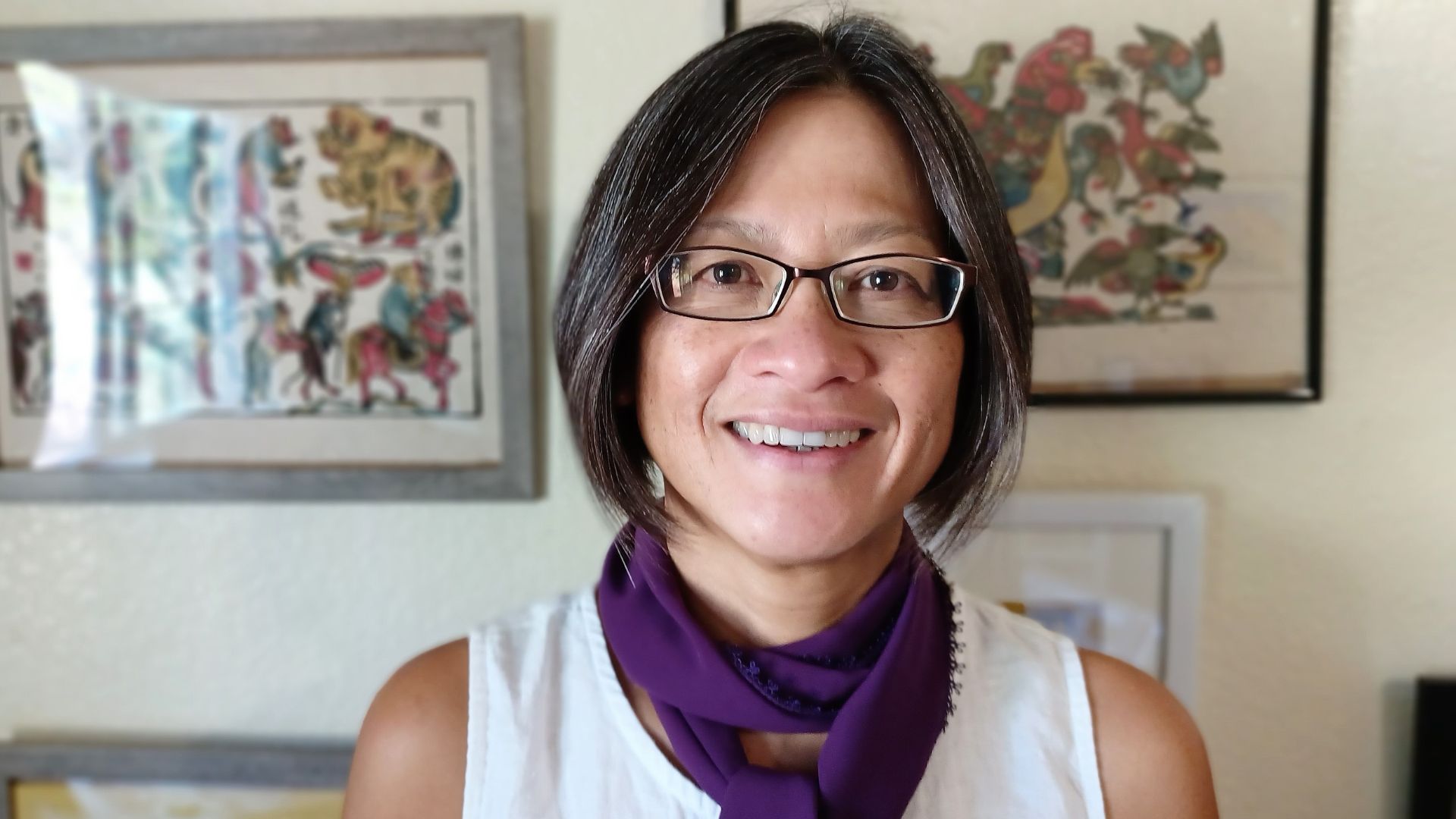Immigrant Heritage Month: Angie Tran’s journey of escape and activism

Political Economy Professor Angie Tran is an immigrant from Vietnam.
June 14, 2023
By Mark Muckenfuss
At 17, Angie Tran escaped Vietnam. What she hasn’t escaped, despite the passage of more than 40 years, is feeling like an immigrant.
“The theme of immigration is very central to my classes,” said Tran, a professor of political economy. “I bring in the experience of my immigration as an example of who I was and who I have become.”
Her journey is one of many being recognized and celebrated during June, Immigrant Heritage Month.
That experience speaks to one facet of who she is, but only one. Tran says it’s important to recognize the many layers people have, and she tries to get her students to do this.
“It’s important to see things in intersections,” she says. “If you only see me as a woman, then you are missing out on a lot – the fact that I’m, among other things, a middle-class cisgender woman of color. I’m a Marxist feminist.”
She’s also a social justice activist and co-founder of the annual Social Justice Colloquium, which has been running at CSUMB since 1997, and of the Coalition for Asian Justice, which advocates for Asian descendants and promotes solidarity with other marginalized groups.
CSUMB, she said, is a good place for fostering such groups.
“Compared to other places,” she said, “we’re still a bubble of tolerance and respect. There is an intersectional consciousness here at CSUMB.”
It was not what she experienced when she first arrived in the United States in 1980.
Tran and a group of relatives slipped out of Vietnam in 1980 on one of the thousands of small vessels that ventured into open ocean waters for more than a decade after the fall of Saigon in 1975 at the end of the Vietnam War. Nearly 2 million fled the country by sea. Many perished in the attempt.
Tran said she and the 46 other people on their overloaded and unseaworthy boat survived by a stroke of good fortune.
“We were super super lucky,” Tran said. “On the fifth day, we had run out of water. We still had rice, but we had no way to cook it. Then we saw a big Danish oil tanker. They took us on board. We were totally embraced by the whole crew. Each of us volunteered to work in particular sections of the ship. I volunteered to work in the kitchen.”
The ship dropped them off in Singapore, where Tran spent three months in a refugee camp before she was able to join her brother, who was already in California.
She entered high school in Orange County as a junior. She had the advantage of knowing English already but spoke with a distinct accent, which set her apart.
“I did experience a lot of racism at all levels,” she said. “But I wasn’t afraid. I stood up, and I fought back. One time in high school, I remember sitting in the cafeteria or out on the lawn. Two white boys were making fun of my accent. I looked them in the eye and said, ‘Hey, I thought the U.S. was a civilized country. This is not civilized.’ Irony was a way for me to fight. And they stopped.”
The boys never bothered her again. Such behavior, she said, comes from individual ignorance and a culture of systemic racism.
“I think it’s not being taught to have an open mind, to learn about other people's cultures, the imbalance of power and white privilege,” she said. “It is my job to educate the public about what we, as Asians and Asian Americans, contribute to this country.”
For years, Tran said, she traveled back to Vietnam every summer as a transnational scholar. That pattern was interrupted by the Covid-19 pandemic, and the wave of anti-Asian violence that came with it, spurred her to become more of an activist.
“I realized this is my home,” she said of California. “I really need to partake and be part of the community. I’m one of the founders of the Coalition for Asian Justice, which was a response to the attacks on Asian people. The event that really broke my heart was the killing of Asian women, and others, in Atlanta.”
That mass shooting in March 2021, which left eight people dead, “really shook me to the core, she said.
CSUMB’s commitment to diversity and inclusiveness provides a good environment and platform for such work, she said.
“I was attracted here by the vision statement,” she said, part of which refers to “fostering a culture where the unique diversity of every person is an inherent value.” “It’s a very powerful statement and very empowering.”
It has helped create a university that she feels creates the potential and possibilities for tolerance and respect.
“That sense of celebrating diversity,” she said, “the sense of embracing cultural differences, is so beautiful to me.”
Editor’s Note: This story is one of a series recognizing Immigrant Heritage Month.